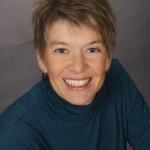Kathleen A. Cahalan, Edward Foley, and Gordon S. Mikoski, eds.
Pickwick Publications, 2017
Read an excerpt from the book »
Visit this title on the publisher’s website »
If only we could do a better job helping students at connecting the dots, theological educators commonly lament. Integration, often proposed as a solution to the woes of professional education for ministry, would help student’s better integrate knowledge, skills, spirituality, and personal integrity. When knowing, doing, and being remain isolated and disconnected, incompetence ensues and the cost runs high for most churches, denominations, and for ministers themselves.
This book, however, shifts the frame and dismantles the long-held view that integrating work falls to students alone. Integrating work is a multifaceted, constructive process of learning that is contextual, reflective, and dialogical. It aims toward important ends—competent leaders who can guide Christian communities today. To learn more, please visit the Integration in Theological Education seminar website.
Q&A with the Editors
What is meant by integration? Integration is a word that generally means putting things together that are separate. The assumption is that if things were connected they would eventuate in something that is better. In theological education we generally mean that two things are separate such as theory and practice or different disciplines and that our knowledge and practice would be enriched if these were more intentionally connected.
What do you mean by it? We mean this and more. We mean the multiple and complex ways that human communities learn together, the ways in which learning draws together, takes apart, and refashions what we know and can do. Integrating work is ongoing—there is no set point or final end, except God’s reign. In our lives it is all the ways in which we draw together, over time and with each other, who we are with what do and why we do it.
Who cares? It seems now just about every area of professional education is concerned about integration. Higher education is fragmenting and students are swamped by the amount of knowledge they must attain, which can be largely disconnected from what they have to do, whether that is an engineer constructing a bridge, a heart surgeon helping patients change their lifestyle, or a first-grade teacher facing a diverse classroom. In ministry, we also face the problem of dis-integrating forms of education: bible is taught as textual criticism, preaching is an oral art, and field education takes place apart from these.
What can theological educators do to make ministry education more integrating? As our book shows, they can do a lot. First, they are already doing a lot, we our case studies show. Many schools have worked for years at integrating experiments—some work and some don’t but we can all learn from both. Second, they can take risks and try new things and we hope that our examples spur new thinking about ways to educate in the future.
What difference does it make? Have you ever been sitting in church wondering why the pastor and community are so dysfunctional? Why they keep repeating the same mistakes, fall into unhealthy patterns, and seem so far from what the gospel intends? What is stake is the very life of our communities. The argument is commonly made that ministers would be more effective if their education was more integrative—so that they connect the dots between the subject matters they learn, skills they acquire, and the kinds of spiritual and faithful people they are. However, we don’t think that integrating work is all up to the pastor or the student—it is up to all of us. Education will only be more integrating if it starts with faculty.
Meet the Editors
 Kathleen A. Cahalan, Ph.D., is Professor of Theology at Saint John’s University School of Theology and Seminary and director of the Collegeville Institute Seminars. She is the author of several books, including Opening the Field of Practical Theology, ed. with Gordon S. Mikoski (Rowman and Littlefield, 2014), and Introducing the Practice of Ministry (Liturgical Press, 2010).
Kathleen A. Cahalan, Ph.D., is Professor of Theology at Saint John’s University School of Theology and Seminary and director of the Collegeville Institute Seminars. She is the author of several books, including Opening the Field of Practical Theology, ed. with Gordon S. Mikoski (Rowman and Littlefield, 2014), and Introducing the Practice of Ministry (Liturgical Press, 2010).
 Edward Foley is Duns Scotus Professor of Spirituality and Professor of Liturgy and Music at Catholic Theological Union in Chicago. A leading author in Catholic liturgy, Foley has published, most recently, Theological Reflection Across Faith Traditions: The Turn to Reflective Believing (Rowman & Littlefield, 2015) and served as the general editor of A Commentary on the Order of Mass of The Roman Missal: A new English Translation (Collegeville: The Liturgical Press, 2011).
Edward Foley is Duns Scotus Professor of Spirituality and Professor of Liturgy and Music at Catholic Theological Union in Chicago. A leading author in Catholic liturgy, Foley has published, most recently, Theological Reflection Across Faith Traditions: The Turn to Reflective Believing (Rowman & Littlefield, 2015) and served as the general editor of A Commentary on the Order of Mass of The Roman Missal: A new English Translation (Collegeville: The Liturgical Press, 2011).
 Gordon S. Mikoski is associate professor of Christian education at Princeton Theological Seminary, where he serves as director of PhD studies and editor for Theology Today. His most recent book is Opening the Field of Practical Theology, ed. with Kathleen Cahalan (Rowman & Littlefield, 2014).
Gordon S. Mikoski is associate professor of Christian education at Princeton Theological Seminary, where he serves as director of PhD studies and editor for Theology Today. His most recent book is Opening the Field of Practical Theology, ed. with Kathleen Cahalan (Rowman & Littlefield, 2014).



